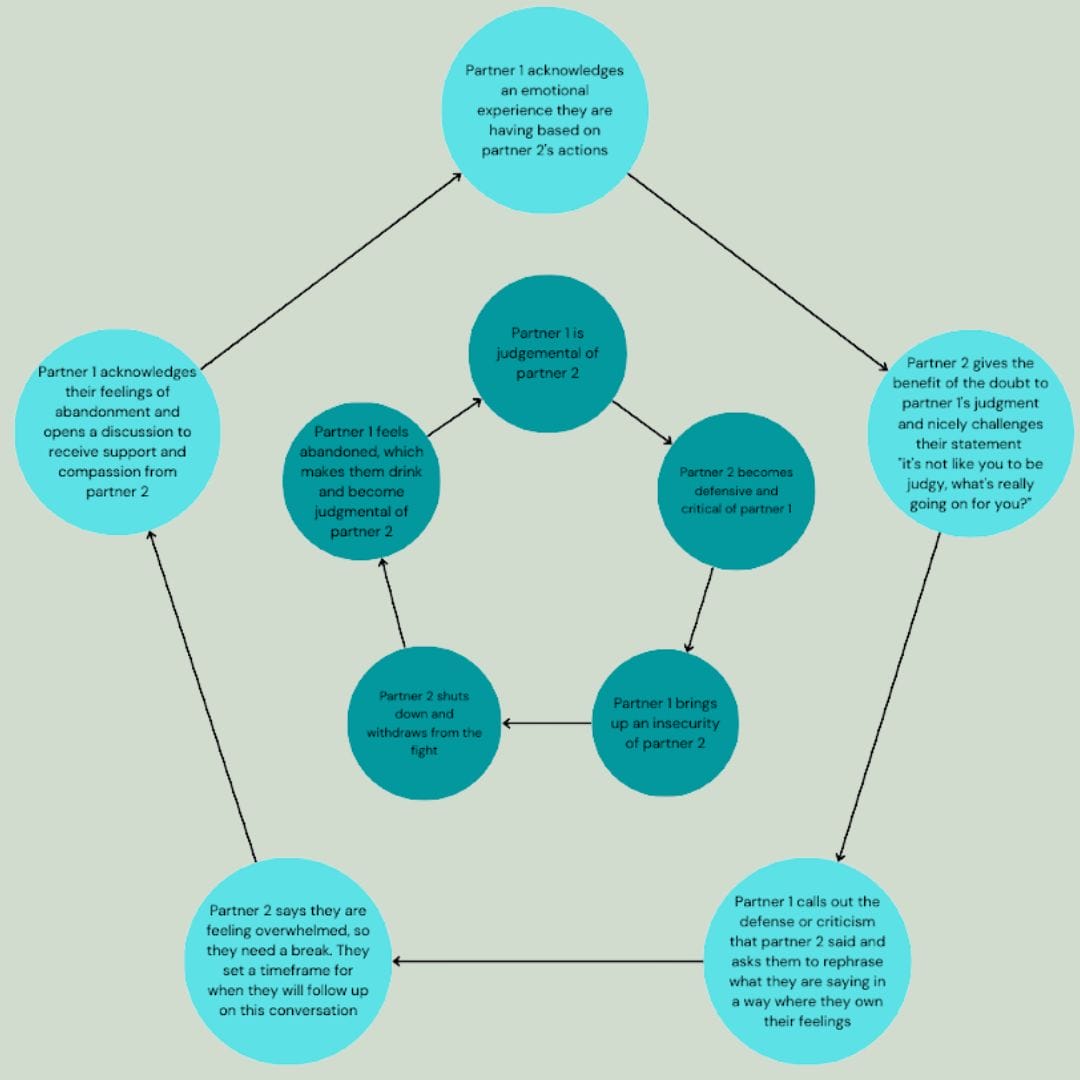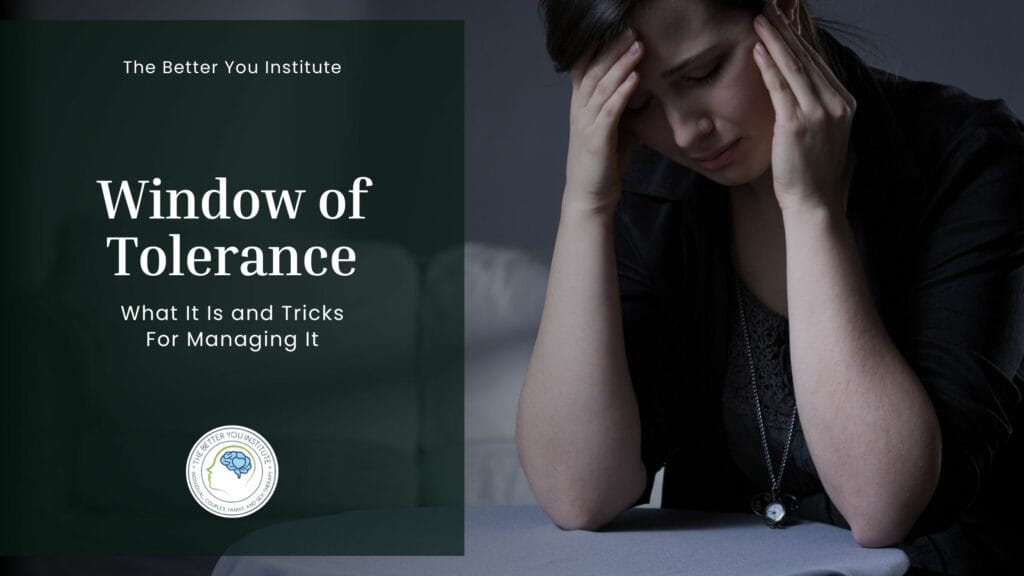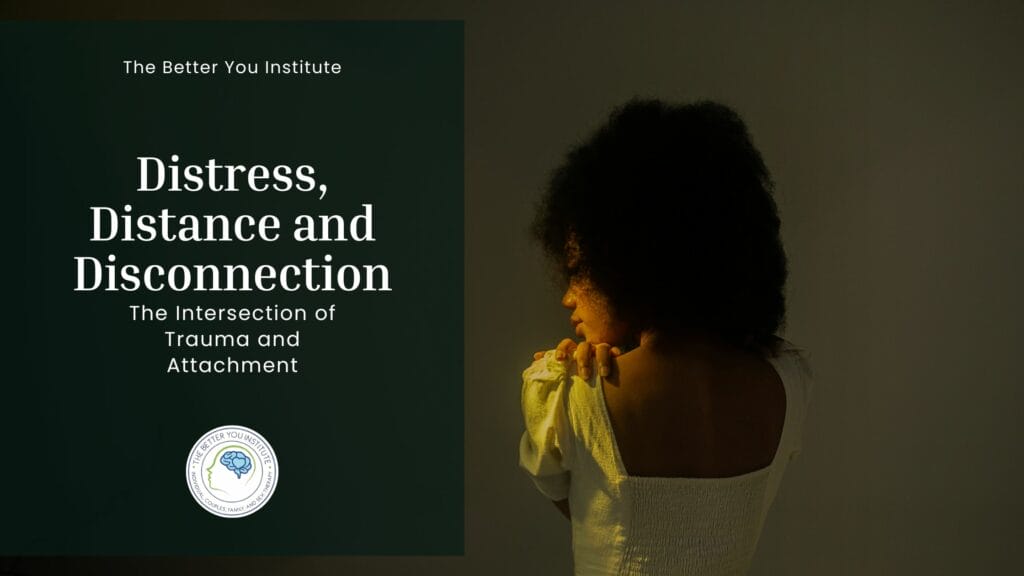Couples fight. Put two people together and have them build a life together, and conflict is bound to come up. The reasons for fights that seem to drive people apart and might make them question why they are together are as myriad as the things that bind people together. In this article we will examine what healthy fighting in relationships is. You will learn to take a step away from pointless fights, understand what motivates these fights, how to talk about what is going on, and how to avoid the pointless parts of the fight in the future.
Not all fights look the same or are caused by the same kinds of things. For one couple, raised voices ring through the home. Another might seem calm from a distance but have anger burning beneath the surface. Fights start for a variety of reasons, maybe one member of the relationship feels they are forced to do more work than the other. Or maybe one partner hurts the other. Some people fight because they want to prove that their partner has done something wrong, and they demand an apology. Some fight to avoid giving that apology. With so much variety in fighting styles and motivations, an important step to resolving these fights is to understand them and the forms they take.
Once a fight has begun, many don’t ask why they are fighting in the first place. Those that do wonder “why” often can’t find an answer. This article won’t give that answer; it will, instead, help you examine the question. Think back on your fights; what form do they seem to take? Are you and your partner stuck in a loop? Are you stuck correcting one another rather than listening to one another? Are you bringing up the last fight and the fight before that, explaining everything they did wrong to you? Are you blaming them for what you feel, asking them why they didn’t stop you from getting upset? Think back on the fights you and your partner have gotten into that didn’t seem to go anywhere, do any of these sound familiar?
Table of Contents
Types of Fights
- Fights about fights
- Misdirected emotions
- Playing out a vicious cycle
- Content-focused rather than process-focused
- Triggering deeper trauma
- Bickering
Fights About Fights
Some fights primarily consist of bringing up old fights. Fighting about the times you and your partner have fought can be a difficult cycle to break. When one fight never has a real conclusion or compromise, each member of the fight may likely have unresolved emotions at the end, which can become fuel for the next fight. When a fight ends because it runs out of steam rather than being resolved, the emotions that drove that fight to remain are just temporarily put out of sight. These hidden resentments have a way of coming back to the surface when a new source of stress is introduced to a relationship.
Misdirected Emotions
Some fights start because you or your partner had a particularly difficult day, or past few days, or weeks. The stresses of work, family, and everything else can pile up and weigh you down. Feelings that get so big that you don’t know what to do with them or feelings that go unrecognized can find ways to make you notice them. For some, this build-up of stress can turn into frustration, anger, isolation, loss of patience, etc., that gets projected onto a loved one. The misdirection of emotions fight is often framed as if it is about some real problem, such as dirty dishes, car repair, or some other tangible issue that may be important but doesn’t address the emotions that exists based on a difficult day, week, or month one partner is experiencing. Instead of talking about how stressful the day was due to an employee not showing up for an important work task, one partner may pick a fight about the dishes in the sink. Thus, the partner picking the fight about the dishes misdirects their emotions from work stress to dishes. In a fight about surface-level issues (dishes, dinner, car repair, etc.), it is important to identify the source and proportion of the emotion involved in the fight. Were you upset before thinking about the thing that you began fighting about? Does this fight merit the amount of emotion you are putting into it?
Playing Out Vicious Cycle
There are often cycles or patterns in the ways we interact. There are times when the pattern becomes so obvious that a couple can feel like they have the same fight repeatedly, even if the topic is different, the process seems the same. . These vicious cycles can feel like they are impossible to break. Once they get started, both members of a couple will play out their roles as if they were pre-written, and this may happen over and over. One action will prompt a response, which will prompt its response, so on and so on. Each partner takes their place and acts out their role as if it’s rehearsed. Essentially, the roles are rehearsed, most likely starting prior to your current relationship. We take on certain roles (caretaker, aggressor, withdrawer, meek, etc.) in childhood and are hard-pressed to step out of these rehearsed roles in the heat of the moment, like the start of a fight. If this is the fight you and your partner seem to get in, the first step to breaking this cycle is noticing it is there. These cycles can look like partners trying to hurt one another, two people over-explaining their own point of view with little regard for the other person’s perspective, or even shutting down the entire conversation, which ignites a chaser/distancer dynamic. Realize this is the type of fight you and your partner get into, and then notice the cycle while it is happening. Learn when you and your partner are falling back into this pattern and stop it in its tracks. It may be helpful to draw on the steps to the cycle and then, while in a calm state, identify a different action you can take at each phase of the cycle.
An example of this is below, where the inner circle is the original cycle, and the outer circle is different actions you can take to elicit a different experience and not ignite old, unhealthy interactional patterns.

Content-focused rather than process-focused
What it means for a fight to be content focused is that there is a lot of time spent trying to describe details that are less important and may change from fight to fight. Content focus is a trait of fighting that can apply to many kinds of fights. If, during a fight, you or your partner is looking through old texts to find something or picking apart the wording of what the other one said, that is referred to as content-focused. Focusing on the content to prove a particular fact or arguing about what someone said or didn’t say can become tedious, and a game of “he said/she said.” Ultimately, getting stuck in content can slow down a discussion or distract from what’s truly going on. The problem with focusing on content is that it gets in the way of deeper understanding and processing of the dynamics present during the fight. When one or both members of a couple spend a fight proving a point without truly hearing the other, there is no room for either of them to understand what the other person is experiencing. Without that understanding, the fight will have a difficult time coming to a resolution.
Focusing on the process in the here and now can lend itself to each member of the relationship feeling seen and heard. To do so, each partner has to shift what they focus on in their discussion. Examples of content-focused fighting vs. process-focused fighting are below:
Content-Focused
P1: “You said you would clean the dishes after we ate dinner. You were sitting right there on the couch while I was cooking.”
P2: No, I never said I’d do the dishes; I said there were going to be a lot of dishes. And I was sitting at the dining room table, not on the couch!”
P1: That’s not true! You said you’d do the dishes, and you were definitely on the couch, it was right after you turned off the 5 o’clock news.
P2: I went upstairs to get my phone charger after I watched the news; I definitely did not volunteer to do the dishes!
P1: Why would you go upstairs to get a phone charger, there is one right here on the counter. You would notice that if you did the dishes.
Process-Focused
P1: What I took from the conversation earlier is that you’d do the dishes. I’m feeling overwhelmed with chores and I don’t feel supported by you.
P2: I’m hearing that you’re not feeling supported by me right now.
P1: Yes! I’m just so overwhelmed.
P2: Feeling overwhelmed can be so uncomfortable! Can you help me understand what would feel supportive right now?
P1: Taking a chore off my plate, like the dishes, would feel really supportive and less overwhelming for me.
P2: Ok, so to feel supported I should do a chore, specifically the dishes?
P1: Yes.
P2: Got it! I can totally do that for you. It sucks to feel overwhelmed.
P1: Thank you for listening. I really feel heard.
Triggering deeper trauma
There are times when a fight can be particularly difficult for one or even both members of a couple. When the thing being fought about or even the fight itself reminds you or your partner of a traumatic event that happened in the past. In this scenario, a secondary conflict may come up; where the feelings that began the fight are still present and still need to be expressed, but you or your partner are dealing with very strong feelings that make communication nearly impossible. This can create new problems where one person feels unable to talk about the things that are troubling them for fear of activating your partner’s trauma response.
Bickering
Bickering is the type of fight where very little productive conversation occurs. A fight can crop up at any time and often ends with two people throwing their hands in the air, feeling frustrated and resigned. A bickering fight can involve two people trying overly hard to get their own point across on the usage of a word or complaining about an annoying habit. What makes bickering different from other types of fights is the ways in which very little is said while using a lot of words. These fights can cover up deeper feelings of frustration and discontentment, but the things being said have little or nothing to do with that.
Why We Fight
These types of fights often leave couples confused. You love each other, the last thing you want is to cause each other pain. In the heat of the moment, expressing your frustration, anxiety, or hurt came out all wrong. You could barely stop yourself. So, why did things get so out of hand? Why did you say what you said? Why did a simple conversation turn into a fight? These questions are ones you and your partner can work together to understand.
Before you are able to answer the questions above, it is imperative that you ask yourself what you gain from “winning” a fight. Frequently, couples in conflict consist of each person desperately wanting to win. Each individual will do, say, or present any evidence necessary to win. Or rather to not lose. This instinctive reaction to try to avoid the pain of losing the fight is a powerful accelerant in keeping a fight going. The problem with that reaction is that keeping the fight going often brings more pain, in the long run, than stopping the fight and apologizing does.
Many couples find themselves continuing a fight because most people are listening to respond instead of listening to listen. When you feel a strong desire to be understood, you will expend much energy saying everything you believe you need to be understood. You will say it loudly, you will say it over and over again. While you do everything you can to get your point across, you may or may not notice that your partner is doing the same thing simultaneously. If you do notice this you might notice that your partner isn’t listening to your points at all. If you notice that, you might get even more upset and try to explain yourself even harder. When you do this your partner may suddenly realize that you haven’t listened to a single thing they said, and of course, they will have to then explain themselves harder and louder, just like you did. It can be difficult to put your feelings to the side. It may not feel fair to prioritize someone else’s feelings over yours. Your partner might feel the same way. What happens when neither of you is willing to put your feelings to the side to actually hear what the other is saying?
A fight between intimate partners rarely results in a clear winner and a clear loser. Even as I talk about the “winner” and “loser” of a fight between you and the person you love and have committed to, I hope you are beginning to see the problem. For one person to end a fight having won, its requisite opposite must also be true, the person you love has lost. So, I ask again. What have you won? What have you won that was worth your partners’ loss?
Here are common reasons people lean into “winning a fight:”
- You want bragging rights, the ability to say, “remember that time I was right, and you were wrong.”
- You want the right to be the victim, “remember when you hurt me.”
- You struggle to be wrong, which feels too vulnerable
- You never learned how to “lose”
- You struggle to own your role in things, often placing blame
- You lack the insight into the deeper meaning of the fight, so you stay surface level
- You are subconsciously sabotaging the relationship
Examine these issues. Consider who these issues are present with. Think about how it feels when they use their victories against you. Do this and ask, do I want this? Take a step back from this fight and remember that person you’re trying so hard to beat is the person you love.
Making Fights Healthy
On the surface, an intimate partnership may seem like it is made up of two people, but there are really three: you, the person you love, and the relationship as a whole. At the end of a fight, if you or your partner wins, then the relationship loses. Now, that doesn’t mean it ends, it just means that it has been hurt. The first step to healing this hurt is to avoid situations where it may get hurt again. If you honor the relationship first and the individuals second, everyone will “win.” If the relationship stays healthy, each individual can relish its riches. Trust, integrity, honesty, connection, etc. can all be a part of the relationship that the individuals get to enjoy.
What does putting the relationship first look like in practice? It means asking yourself, “how will me saying this serve the relationship?” If you pick a fight with your partner, will the fight breed connection or resentment? If you choose independent time over togetherness, is that serving the relationship? Both of these scenarios could go either way. In the former, if you discuss a hard topic that is necessary to discuss to build the relationship, it may cause a fight at first. However, if you can get to a resolution, it will curate the connection. In the latter scenario, if you need alone time to recenter yourself, so you don’t pick fights or say something hurtful, you are serving the relationship, too.
Give up on winning. I know what that means; not winning runs the risk of vulnerability. But if your relationship is stuffed full of pointless arguments and painful fights, you are already not winning. For as long as you and your partner are committed to each other and to the relationship, the only way to truly win is to choose vulnerability and lean into the other person’s experience. It is imperative that you see the best in your partner and remember they are on your team. Give them the benefit of the doubt when they do or say something off-putting. Get curious with them instead of angry or shut down.
You and your partner are choosing every day to stay together. You love each other, and you have learned to fight and make up because of the strong bonds that have formed between you. These bonds are more than just habit or doing what you’ve always done because change is scary. People building a life together is a powerful thing. We need the ones we love in our life and they need us. It can be scary to need others and a different kind of scary to be needed. For many of us, fighting is a way to avoid that kind of fear. With the help and with practice, any relationship with a foundation of love and a life that is being shared can overcome the fighting. If you find that you are having trouble on your own, a counselor might be able to help.
If you find yourself fighting with your partner a lot, keep these types of fights in mind. What can you do instead? If you still struggle to put the relationship first and fight productively after reading this article, give us a call. Our trained psychotherapists can help you navigate the ups and downs of your relationship. 267-495-4591.







